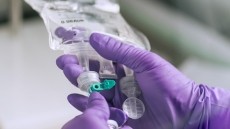CMC Biologics, Trellis sign long-term agreement to advance mAbs

CMC ICOS Biologics, Inc., a wholly-owned subsidiary of Asahi Glass Company (AGC), is a contract development and manufacturing organization (CDMO).
Trellis Bioscience LLC is a venture-funded therapeutic antibody company developing three human mAbs with expected IND filings in 2018.
Under the agreement, CMC Biologics will provide cell line development, process development, scale-up, and cGMP manufacturing for two of Trellis Bioscience’s mAbs, including a treatment for respiratory syncytial virus (RSV) infections and bacterial infections that are drug resistant because of bacterial biofilm formation.
“The agreement covers a long term relationship and includes for both antibodies the cGMP manufacturing of clinical material, an exact timeline of which is not yet disclosed,” Gustavo Mahler, PhD., CMC Biologics president and CEO told us.
The agreement leverages CMC Biologics’ CHEF1 Expression System, which Mahler said accelerates cell line development for cGMP production by using procedures and raw materials including chemically defined media, adapted Chinese hamster ovary (CHO) cells, and CHEF1 expression plasmids to quickly produce recombinant proteins.
CMC will also be using its multi-column continuous chromatography (MCC) technology for Trellis’ downstream processing.
“Our MCC technology uses several small columns for a purification step instead of one large chromatography column as is used in traditional batch chromatography,” Mahler explained. “The small columns are run in series to achieve maximum resin loading and are cycled automatically multiple times for continuous processing.”
According to Mahler, less resin is needed for the MCC process, which can affect a product’s development costs.
“MCC technology is also an option for companies wishing to switch from batch to continuous processing, at any phase during clinical drug development,” he added.
Material delivery for the RSV program’s pre-clinical toxicology studies is expected at the end of Q3 2017; process development and scale-up for the biofilm-disrupting antibody are to be completed by end of Q4 2017.
























